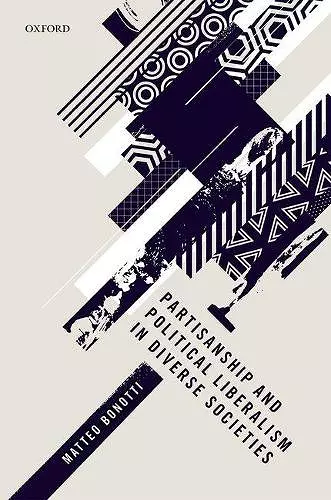Partisanship and Political Liberalism in Diverse Societies
Format:Hardback
Publisher:Oxford University Press
Published:20th Jul '17
Currently unavailable, and unfortunately no date known when it will be back

Since its publication in 1993, John Rawls's Political Liberalism has been central to debates concerning political legitimacy, democratic theory, toleration, and multiculturalism in contemporary political theory. Yet, despite the immense body of literature which has been produced since Rawls's work was published, very little has been said or written regarding the place of political parties and partisanship within political liberalism. This book aims to fill this gap in the literature. Its central argument is that political liberalism needs and nourishes political parties, and that political parties are therefore not hostile but vital to it. First, partisanship generates its own distinctive kind of political obligations, additional to any political obligations people may have qua ordinary citizens. Second, contrary to what many critics argue, and despite its admittedly restrictive features, Rawls's conception of public reason allows significant scope for partisan advocacy and partisan pluralism, and in fact the very normative demands of partisanship are in syntony with those of public reason. Third, parties contribute to the overlapping consensus that for Rawls guarantees stability in diverse societies. Fourth, political liberalism nourishes political parties, by leaving many issues, including religious and socio-economic ones, open to democratic contestation. In summary, parties contribute both to the legitimacy and to the stability of political liberalism.
Bonotti's insightful, well-argued text deserves praise and attention. The hope for the legacy of this work is that more political liberals follow suit in applying Political Liberalism to the modern world. Bonotti proves in this work how this has the potential to generate novel analyses of Rawls's ideas. * Thomas Godfrey, Res Publica *
Partisanship and Political Liberalism in Diverse Societies is arguably the most theoretically conservative book on the topic of parties and partisanship that has been written so far but for that very reason, it might well become the most influential and widely discussed one. * Fabio Wolkenstein, Contemporary Political Theory *
In this innovative book, Matteo Bonotti shows that party competition and partisan advocacy are fully compatible with the liberal ideal of democratic public reason. Partisanship plays a crucial role in the vitality, legitimacy and stability of democratic institutions, and as a normative ideal, it comes attached to distinct roles and obligations. Bonotti's argument has wide ramifications for our understanding of political obligation, religious contributions to public debate, the permissibility of hate speech, the nature of accountability, and electoral systems. An important contribution to an area of growing political and academic interest. * Cécile Laborde, Nuffield Chair of Political Theory, University of Oxford. *
Partisanship and Political Liberalism is a major contribution to the political theory of partisanship. It sparkles with important and surprising arguments, including, for example, the way partisanship contributes to the legitimacy of political liberalism, or the possibility that the duty of civility should be legally enforced. In clear and forceful terms, Bonotti advances a comprehensive ethics of partisanship that completes the ideal of political liberalism. In contrast to those who believe that partisanship finds a more comfortable home in Habermas' public reason than in Rawls', Bonotti argues that Rawlsian political liberalism in fact creates a capacious space for partisan contestation. This book carefully and emphatically puts to rest any notion that political liberalism can do without parties and partisanship. * Russell Muirhead, Robert Clements Professor of Democracy and Politics, Dartmouth College *
Matteo Bonotti's new book is a welcome and important contribution. It proposes the first in-depth exploration of the role of political parties and partisanship within the framework of Ralwsian political liberalism and public reason. * Dominique Leydet, Canadian Journal of Political Science *
What do we get by bringing Rawls' philosophy of public reason to bear on the un-elevated subject of political parties and partisanship? In Matteo Bonotti's hands we get insight into partisans' distinctive duty of civility and partisans' distinctive latitude to shape an overlapping consensus among conflicting beliefs. This is a timely moral justification of political parties' contribution to reasoning about justice in liberal democracy. * Nancy L. Rosenblum, Senator Joseph S. Clark Professor of Ethics in Politics and Government, Harvard University *
'Overall, in this book Bonotti does not only provide clear requirements that partisan reasons need to meet, but he also clarifies that Rawlsian public reason is more dynamic and open to contestation than what is suggested by its critics (Bellamy 1999; Dryzek 2000; Eberle 2002). Partisanship and Political Liberalism in Diverse Societies represents, then, a great contribution to the debate both on the normative analysis of partisanship and on the scope and content of public reason.' - Enrico Biale Ethical Theory and Moral Practice
ISBN: 9780198739500
Dimensions: 242mm x 170mm x 17mm
Weight: 466g
208 pages